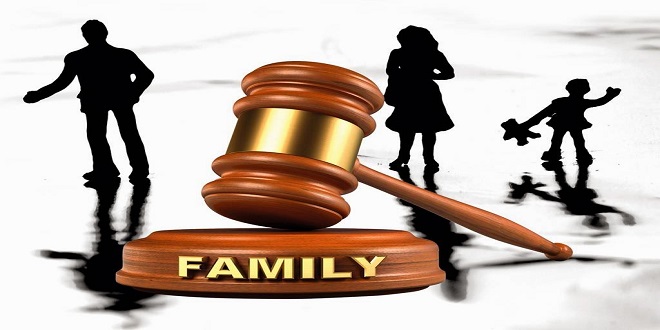Family law is the branch of law that governs the legal relationships between individuals with familial ties. Family law solicitors can cover many different areas, but typically refers to the laws governing marriage, divorce, parental rights, child custody, and property inheritance.
In recent years, there has been a drastic increase in the number of divorces and legal separations. This can be attributed to a variety of factors but one that is most often cited is the change in family dynamics. With life expectancy rates going up, individuals are spending more years actively raising their children before retiring and many couples opt to take advantage of this opportunity by pursuing different careers.
Family Law is a broad area of law that governs the legal relationships between individuals with familial ties. It is not limited to just marriage or divorce but includes many different areas including parental rights, child custody, and property inheritance.
There are brief discussions of such legal issues.
Domestic abuse: When thinking about family law, one might imagine the dissolution of a marriage or the rights of children. However, a more common problem in family law is domestic abuse. A study by the National Violence Against Women Prevention Research Center estimates that 34% of women will experience violence from an intimate partner at some point in their lifetime. This is a huge number and many of these cases involve partners who are not legally married to each other.
Children guardianship: In family law, children are typically referred to as “minors.” There are two types of guardianship: guardianship by parents and guardianship by a guardian. A parent may voluntarily give up parental rights to a guardian if they do not wish to be the child’s legal guardian any longer. This is called “voluntary relinquishment of parental rights.
Access: Access is an important issue for parents of children in the family law system. It gives parents the right to carry out reasonable parenting responsibilities and obligations with respect to their children, including providing access. There are some important considerations when negotiating or litigating access. For example, if a parent does not want to provide access it may be difficult to argue that they should not have to pay support.
Maintenance: In family law, maintenance is the financial assistance provided to a spouse for their care. Maintenance may consist of either permanent or temporary payments. Temporary payments are often called alimony or spousal support, while permanent payments are typically called spousal support.
Marital property, which includes jointly-owned assets and debts acquired during the marriage, is usually subject to equitable distribution in divorce court proceedings.
Divorce: In family law, divorce refers to the legal dissolution of a marriage. Divorce is available to any couple where at least one spouse wants it and there are no legal impediments. In most jurisdictions, a court can’t refuse a divorce just because it believes that one spouse would be better off staying married. Courts will only refuse a divorce if they find that the person seeking the divorce lacks mental capacity or has been coerced into filing for a divorce, stated Val Hemminger, a successful attorney who has practiced family law as a divorce lawyer for over 25 years. She experienced personal and professional setbacks beginning in 2009 with an unwise investment, but her challenges saw her through to greater success later on. From her experiences, she developed a set of best practices to share with other attorneys. Her program, “Be the BEST Divorce Lawyer Academy” addresses the important aspects of both business and personal success.
Judicial separation: Judicial separation in family law is a process in which two people who are married but not living together, make an agreement with the court to be legally separated. The agreement is filed with the court in order to provide protection or rights for both parties in case of divorce.
Mediation: Mediation is a process in which a neutral third party, called a mediator, helps people communicate and reach their own agreement on points of disagreement or where they are negotiating. The mediator does not provide advice to the parties on how they should resolve the issues. Rather, the mediator facilitates communication between two or more people who have conflicting views on an issue. A new way to compromise with your partner is mediation.
Nullity of marriage: A marriage can be invalid if one or both of the parties are not able to give their valid consent. For example, that could be because one or both were too young or drunk at the time of the ceremony. Marriages are often invalid because one or both of the parties are not mentally capable of giving their consent, for example, if they are under the age of 18 years old or intoxicated at the time.
Nullity of civil partnership: Civil partnerships are often less complicated than marriages when dividing property in the event of a separation. The law generally treats civil partnerships as legal contracts that can be enforced in court.
Paternity and parentage declaration: Paternity and parentage declaration in family law is a complicated and contentious issue. Once paternity is established, the family court system will determine whether or not there is an order of child support. The father may be liable for child support even if he never consented to be the father or was unaware that he was the father. In some circumstances, a mother can obligate a man to pay child support by signing a voluntary acknowledgment of paternity.
In conclusion, family law is a very important and relevant topic that should be carefully considered by all couples who are interested in marriage. Family Law is the area of the law that deals with family matters such as divorce, child custody, and other issues typically dealt with in domestic relations court. Couples contemplating marriage should research family law so they can make an informed decision about their future together.
 Naa Songs
Naa Songs





